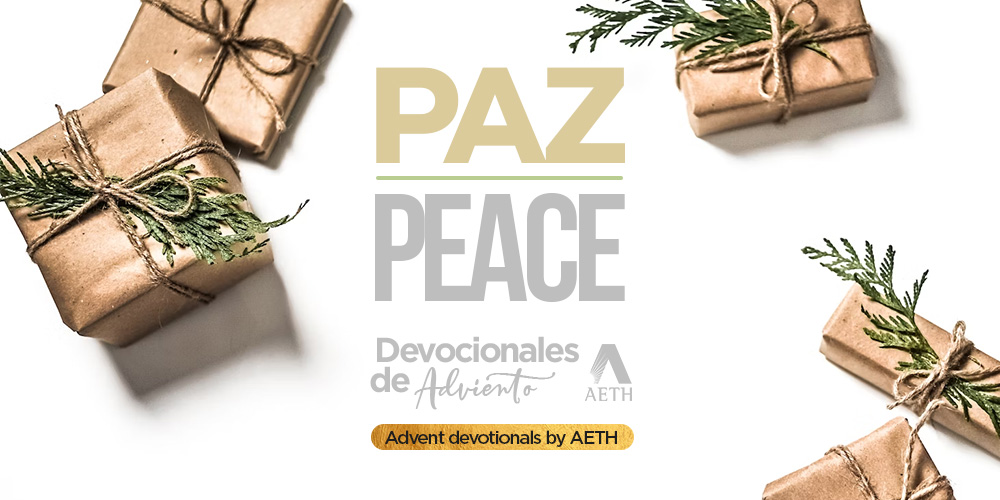“Sigamos, pues, las cosas que contribuyen a la paz y a la edificación unos de otros” (Romanos 14:19).
¿Cuáles son las cosas que contribuyen a la paz? El compositor de “Santa la Noche” escribió: “Nos enseñó a amarnos unos a otros / Su ley es amor y Su evangelio es paz / Las cadenas romperá porque el esclavo es mi hermano / Y en Su nombre cesará la opresión.” En un mundo y un país tan divididos, existe el sufrimiento de las comunidades desatendidas, los gritos de la gente en las zonas fronterizas y la peligrosa lucha de los oprimidos que buscan justicia. Hoy enfrentamos tiempos de malestar espiritual, social y político. Muchas personas a nuestro alrededor están destrozadas y dolidas, y son presa de la desesperanza. ¿Estamos viendo y escuchando?
“Su evangelio es paz”. El concepto de paz del Antiguo Testamento incluye plenitud, solidez, seguridad, prosperidad, bienestar y salud. En el Nuevo Testamento, la paz se presenta como un regalo de nuestro Salvador y resume la esencia del evangelio. El compositor continúa describiendo cómo es la obra del Mesías: “Las cadenas romperá porque el esclavo es mi hermano, Y en Su nombre cesará la opresión.” La definición de paz como justicia política delinea a un embajador que negocia términos de reconciliación entre las partes, buscando el bienestar y el estado moral y justo de la comunidad. Esta definición nos recuerda la obra de Débora, cuya agencia trajo paz y justicia al país (Jueces 8), o como la mujer sabia que habló convincentemente a un rebelde político (2 Sam 20:1-2, 14-22). Pinta la imagen perfecta de Jesús, quien trajo la reconciliación. Pablo describe la paz como protector o custodio de nuestros corazones, o como gobernante o juez. Por último, la paz es fruto del Espíritu Santo. Es transformadora, siempre activa. Éstas son las cosas que contribuyen a la paz.
Mientras recorremos la temporada navideña, le invito a reflexionar sobre el significado de la paz y a compartir activamente este regalo con otros.
REFERENCIAS
Walter A. Elwell. (2001). Evangelical Dictionary of Theology. Baker Academic: Grand Rapids, Michigan. “Peace”; pg. 896 – 897.

